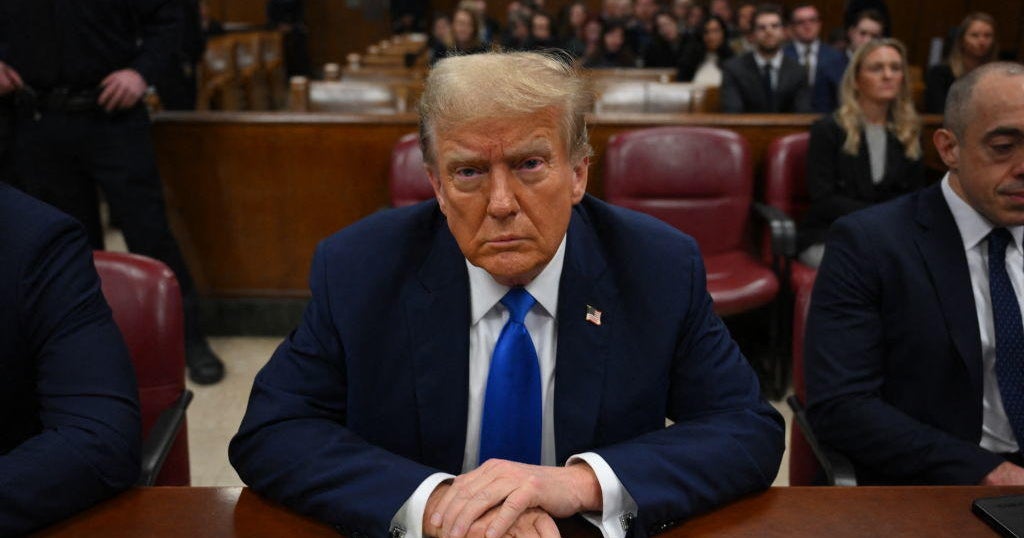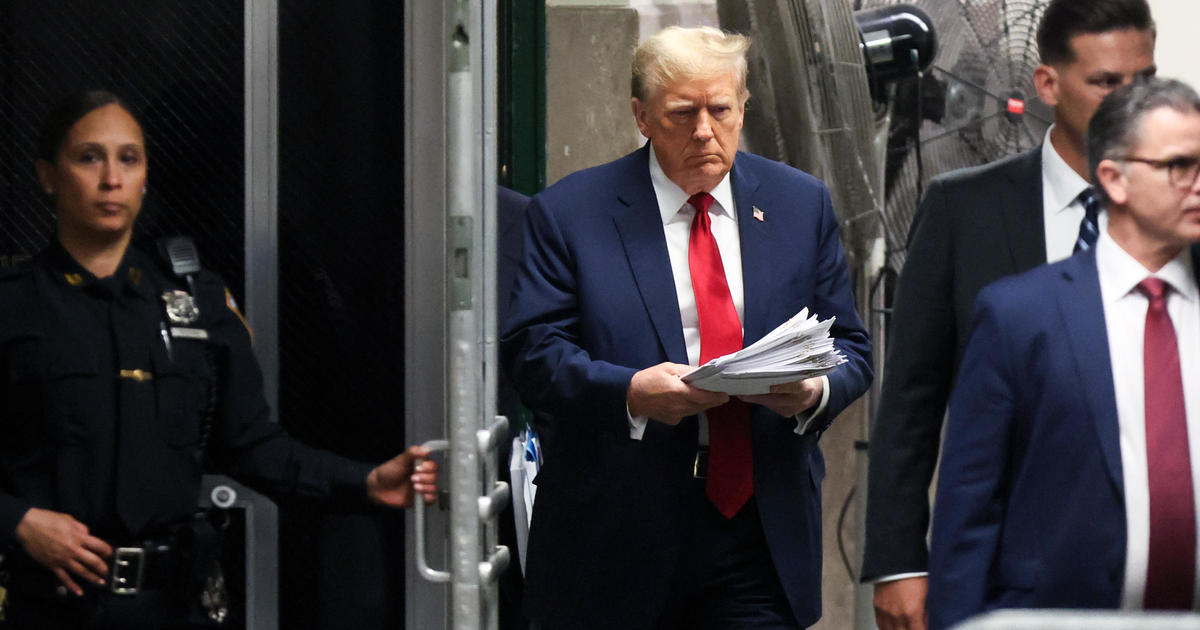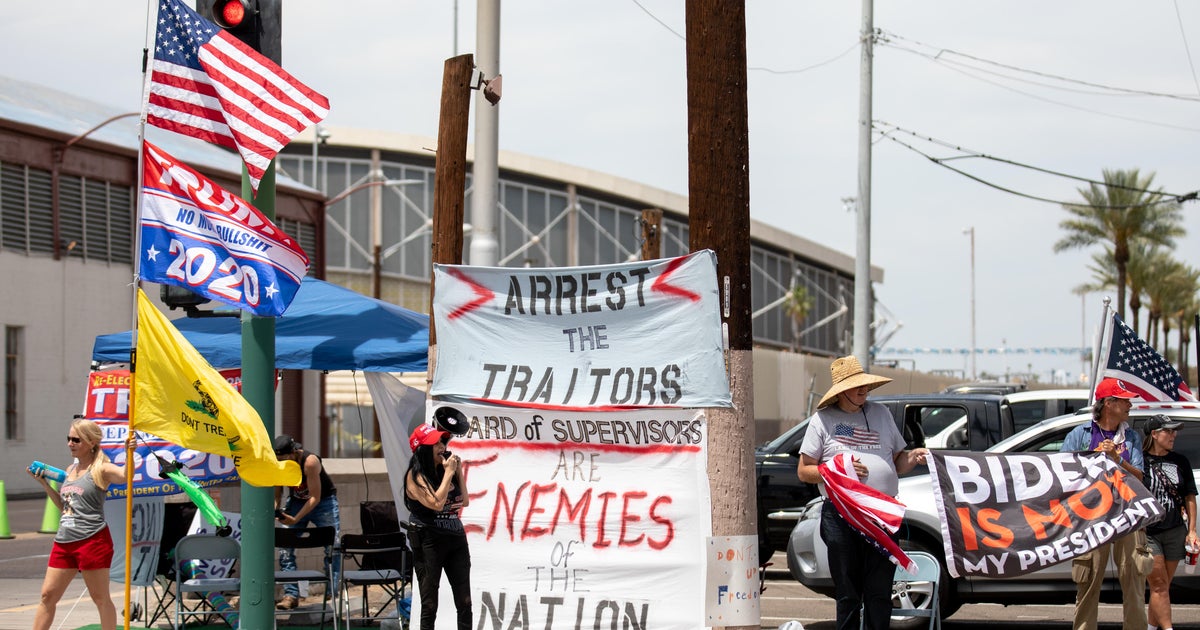Trump lashes out at New York Times reporter in latest attack on press
President Trump's first public comments from Palm Beach, Florida, on Saturday were to attack New York Times' White House correspondent Maggie Haberman, apparently over her coverage of a criminal investigation of Mr. Trump's personal lawyer. They were the latest in his sustained attacks on the press in general, specific media outlets, and even specific reporters, as well as their sources and methods.
His remarks also served as an indication of how much the situation involving his lawyer Michael Cohen appears to be frustrating Mr. Trump. The president has dubbed recent raids on Cohen's office, home and hotel room a "disgrace" and "attack on our country."
But Mr. Trump on Saturday singled out Haberman, who was part of a team that won a Pulitzer Prize this year for reporting on the Trump team's Russia connections. On Friday, Haberman and other New York Times reporters wrote that Cohen could turn against Mr. Trump as he faces a federal criminal investigation over his business dealings.
CBS News' Jeff Pegues has also reported that sources close to Cohen are concerned he could turn against the president to cooperate with investigators. Cohen, who has been Mr. Trump's personal attorney for years, has been privy to some of the most sensitive dealings of Mr. Trump's presidency and time as a businessman. Cohen, Pegues noted, is circling the wagons as he drops libel lawsuits against Fusion GPS, which commissioned the dossier alleging ties between Mr. Trump and Russia, and BuzzFeed News, which published that dossier.
Mr. Trump on Saturday called Haberman a "third-rate reporter," saying she and the publication are going "out of their way to destroy Michael Cohen and his relationship with me in the hope that he will 'flip.'" Mr. Trump accused Haberman and other New York Times reporters of making up sources, and speaking to a "drunk/drugged up loser who hates Michael." He didn't substantiate those claims.
Mr. Trump also said he doesn't see Cohen flipping.
"Sorry, I don't see Michael doing that despite the horrible Witch Hunt and the dishonest media!" he tweeted.
Mr. Trump deleted his first series of tweets about Haberman after misspelling her name, something she and the paper pointed out on Twitter. Mr. Trump then reposted his tweets with the correct spelling.
The New York Times responded to Mr. Trump's tweets, saying the publication is "extremely proud" of Haberman, one of their star reporters.
Haberman, too, responded, linking to the story that she said "seems to have touched a nerve."
It's not the first time Mr. Trump has singled out Haberman. In March, the president also lashed out at her on Twitter, claiming she had "no access."
After that, a colleague of Haberman's tweeted out a photo of Haberman and Mr. Trump smiling in the Oval Office. On Saturday, that New York Times reporter, Mike Schmidt, tweeted out that photo again.
Mr. Trump's attacks on the press, which have previously drawn applause from audiences at his campaign-like rallies, have been a hallmark of his campaign strategy and now, of his presidential style. In January, the Committee to Protect Journalists listed Mr. Trump among global oppressors of a free press.
"Reporters can and should be open to criticism, and a contentious relationship between the press and the presidency is normal and healthy, but the sheer quantity of Trump's attacks on the media and his tendency to go after individual reporters showcase some deeply concerning priorities," said Alexandra Ellerbeck, CPJ's North America program coordinator. "Since the start of his campaign, Trump has tweeted attacks at the media more than 1,000 times. The highest elected official in the United States shouldn't be using his platform to go after individual reporters or to promote conspiracy theories about reporters inventing sources."
Memos authored by fired former FBI Director James Comey, and published Thursday night, claim Mr. Trump last year joked with Comey about jailing journalists and those journalists making a "new friend" in prison.
"They spend a couple days in jail, make a new friend, and they are ready to talk," Mr. Trump said, according to Comey's notes.
In Manila in November, Mr. Trump laughed when the Philippines' dictator-like President Rodrigo Duterte called journalists "spies."
At the beginning of the year, the president announced his "Fake News Awards," which the Republican National Committee ultimately published. The president highlighted not just mistakes members of the media had made as the top 10 winners, but generic categories that didn't mention an outlet or reporter at all, like "RUSSIAN COLLUSION."
The president's attacks on the media have prompted some in his own party to speak up. Sen. John McCain, R-Arizona, wrote an op-ed in The Washington Post in January claiming Mr. Trump's charges of "fake news" just because he doesn't like or agree with coverage about him is causing a negative ripple effect across the globe.
"Whether Trump knows it or not, these efforts are being closely watched by foreign leaders who are already using his words as cover as they silence and shutter one of the key pillars of democracy," McCain wrote.
"While administration officials often condemn violence against reporters abroad, Trump continues his unrelenting attacks on the integrity of American journalists and news outlets," McCain continued. "This has provided cover for repressive regimes to follow suit. The phrase "fake news" — granted legitimacy by an American president — is being used by autocrats to silence reporters, undermine political opponents, stave off media scrutiny and mislead citizens."



